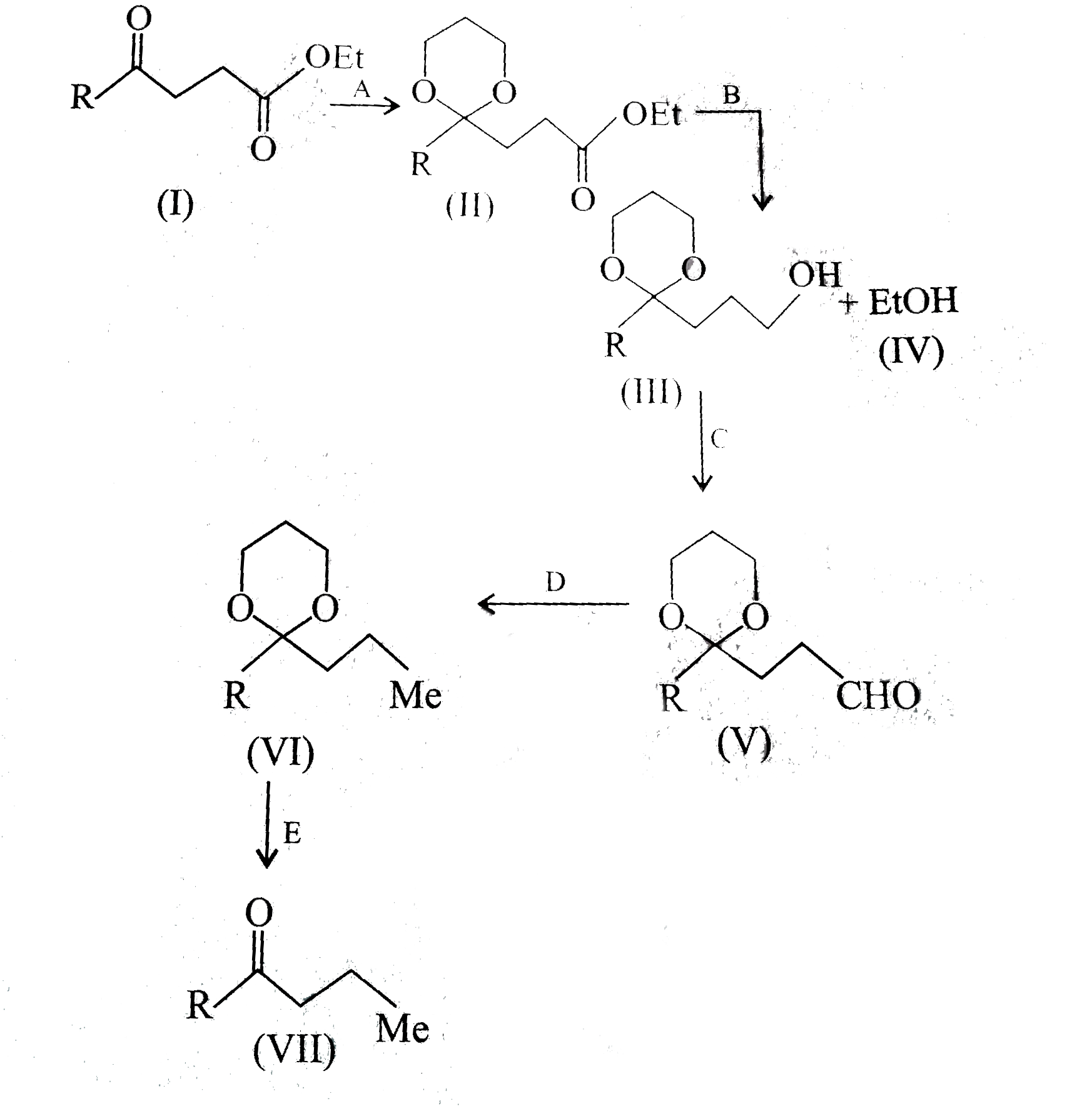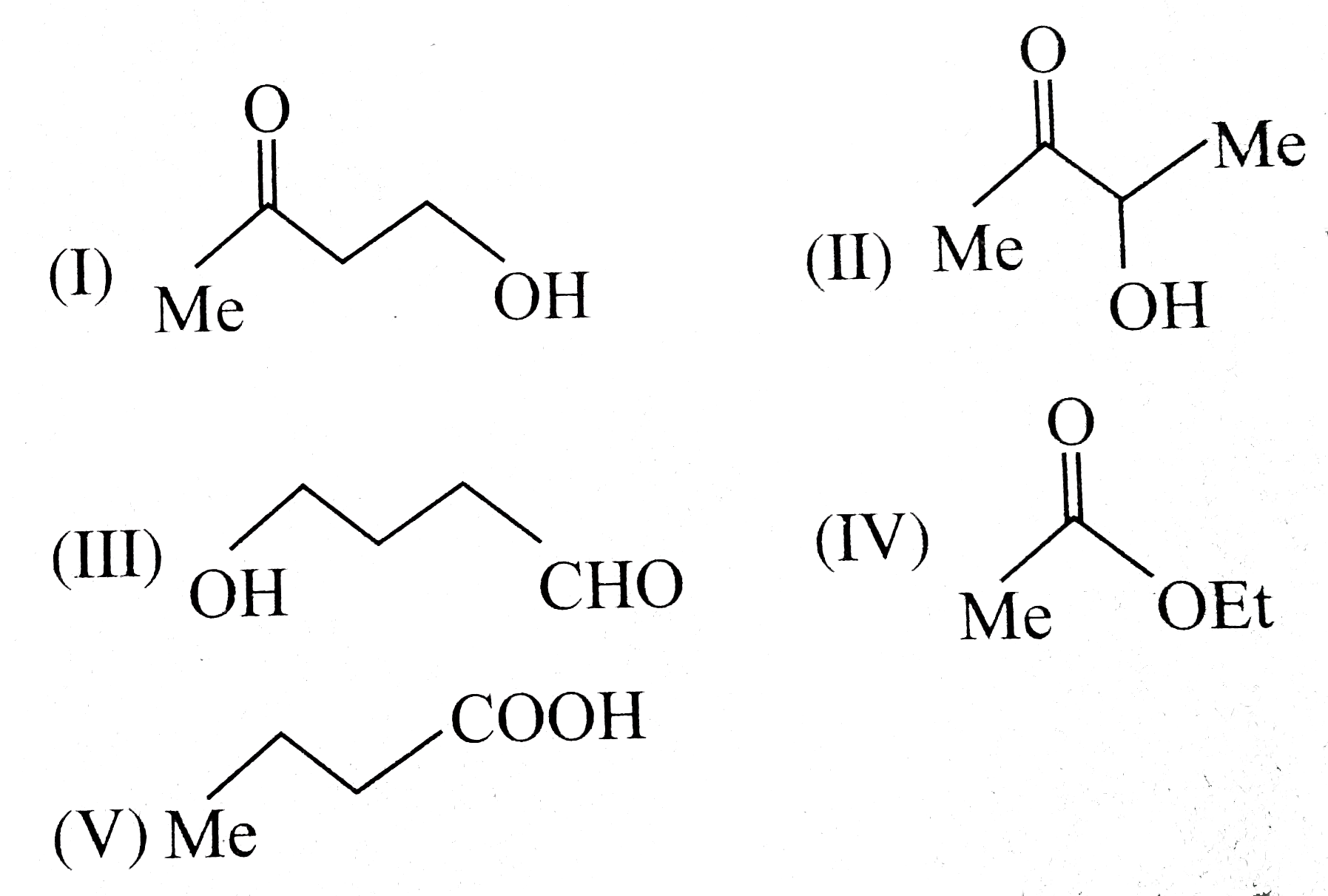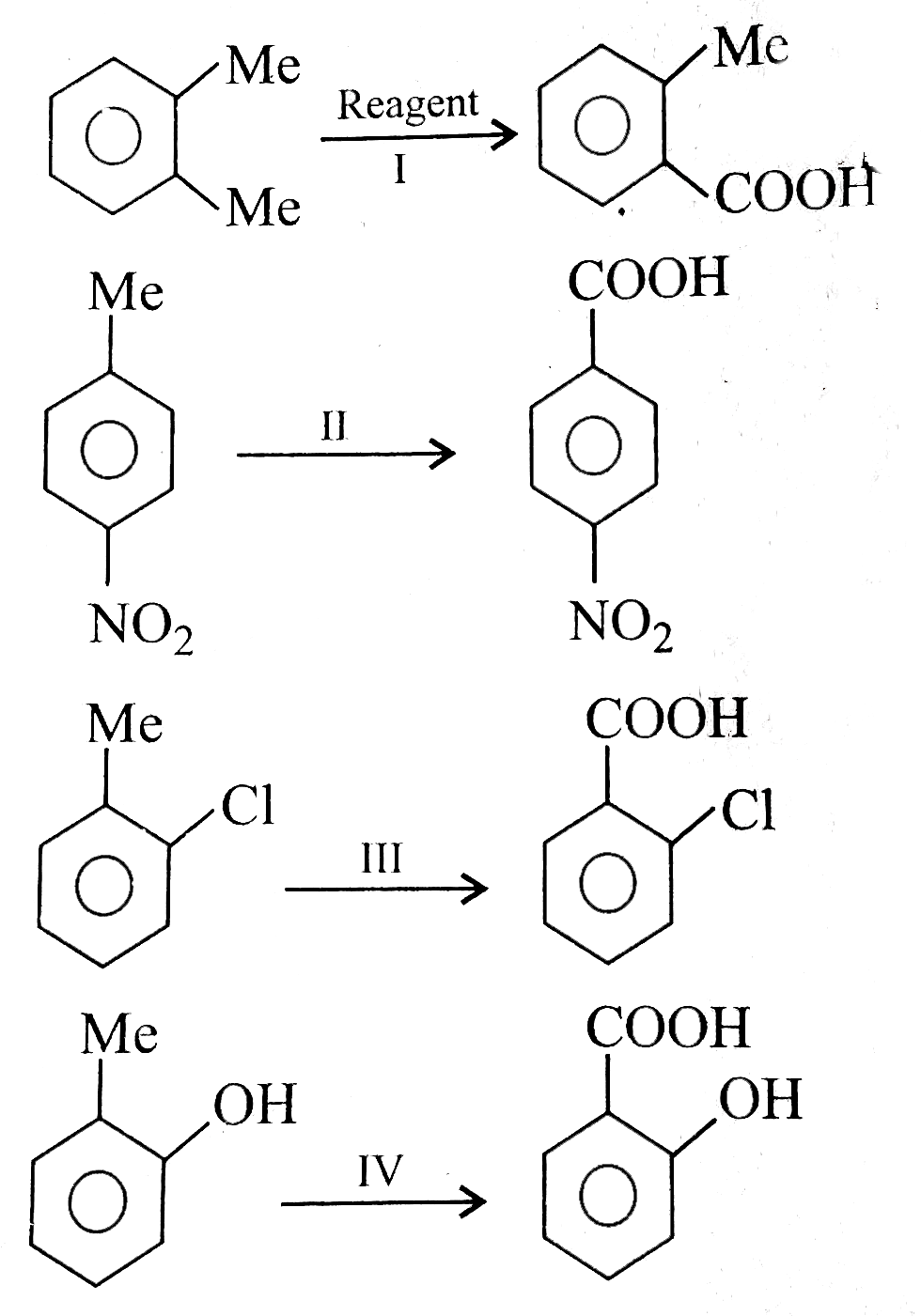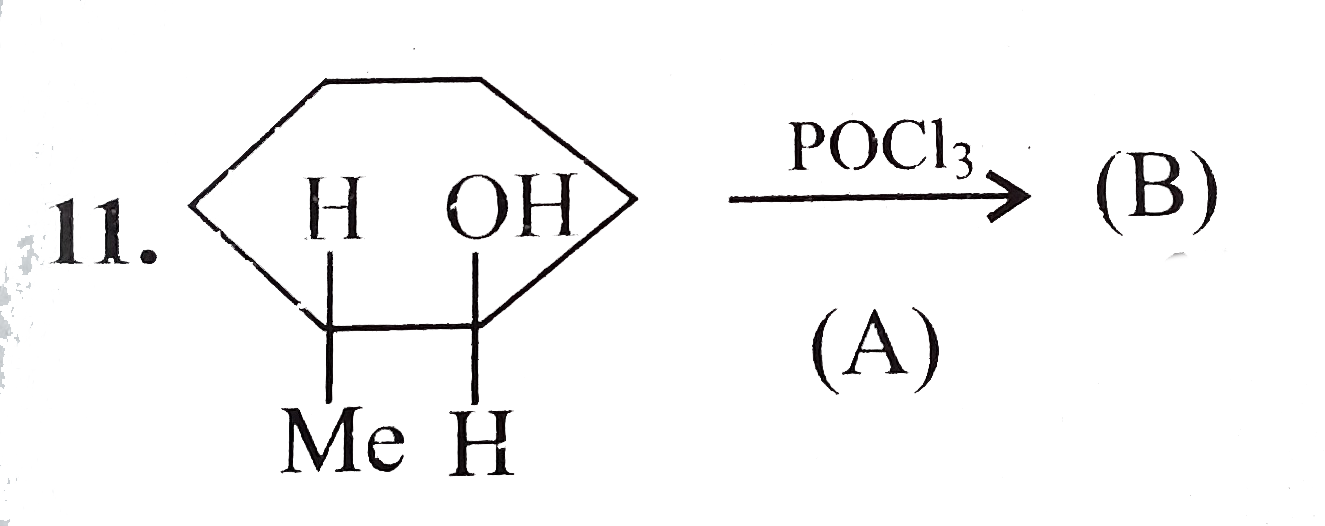Complete Solutions to Exercise (Multiple Correct) of chapter REDUCTION AND OXIDATION REACTION OF ORGANIC COMPOUNDS of Class 12 book with complete answers and questions
| Class 12 | CHEMISTRY |
| Chapter | REDUCTION AND OXIDATION REACTION OF ORGANIC COMPOUNDS |
| CENGAGE CHEMISTRY | Exercise (Multiple Correct) |
| Number Of Questions | 35 |
| Academic Year | 2023-24 |
Which statement(s) is/are correct about the reaction:

View Solution
Which statement(s) is/are correct?
View SolutionConsider the following reactions:

Which of the following reagents is/are used in the above conversion?
View SolutionIn Q. No. `3`, direct conversion of II to V can be carried by:
View SolutionConsider the following reactions:

Which of the following group(s) of reagents is/are used in the above conversion?
View SolutionCompound `C_(4)H_(8)O_(2)` exists in various strutures as shown:

Which statement(s) is/are correct?
View SolutionConsider the following Baeyer-Villiger oxidation.

View SolutionSelect the correct Baeyer-Villiger oxidation reaction:
View SolutionSelect the correct group(s) of reagent(s) used in the following conversions:

View SolutionWhich statements(s) is//are correct:

View Solution
Which of the following statement(s) is/are correct?
View SolutionIn Q.No. 11, which of the following reagents can be used to convert (A) to (B)?
View SolutionWhich of the following will give yellow precipitate with KOI?
View SolutionWhich of the following will undergo periodic oxidation?
View SolutionWhich of the following reactions is not correct ?
View SolutionWhich of the following reactions is//are correct?
View SolutionWhich statement(s) is/are wrong?

View SolutionWhich of the following reaction(s) is/are correct?
View SolutionWhich of the following reaction(s) is/are wrong?
View SolutionWhich of the following reactions is/are wrong?
View SolutionWhich of the following unbalanced reactions is/are correct?
View SolutionWhich of the following methods is/are correct for the synthesis of benzaldehyde?
View SolutionWhich of the following reaction is/are correct?
View SolutionWhich of the following methods is/are correct for the synthesis of

View SolutionWhich of the following on oxidation with alkaline `KMnO_(4)` follwed by acidification with dil. HCl gives terephthalic acid?
View SolutionWhich of the following methods can be used to prepare propanoic acid?
View SolutionWhich of the following statements is/are correct about formic acid?
View SolutionWhich of the following can reduce Benedict's solution?
View SolutionBenzoic acid and carbolic acid can be distiguished by:
View SolutionWhich of the following compounds will not give haloform reaction?
View SolutionWhich of the following compounds do(es) not react with `H_(2)+Pd+C`?
View SolutionWhich of the following compounds reacts with `NaCNBH_(3)`?
View SolutionAcetonitrile `(Meoverset(o+)(N)-=overset(ɵ)(C ))` on reaction with `Cl_(2)` with `DMSO` gives methyl isocyanate `(MeN=C=O)`. Isocyanides can also be oxidised to alkyl isocyanates with:
View SolutionAlkyl isocyanides `(Roverset(o+)(N)-=overset(ɵ)(C ))` are reduced to `2^(@)` amines `(R-NH-CH_(3))` with:
View SolutionMethanamide is reduced to methanamine with:
View Solution
Exercise (Multiple Correct) questions and complete solutions for chapter REDUCTION AND OXIDATION REACTION OF ORGANIC COMPOUNDS of CENGAGE CHEMISTRY (ENGLISH) of Class 12